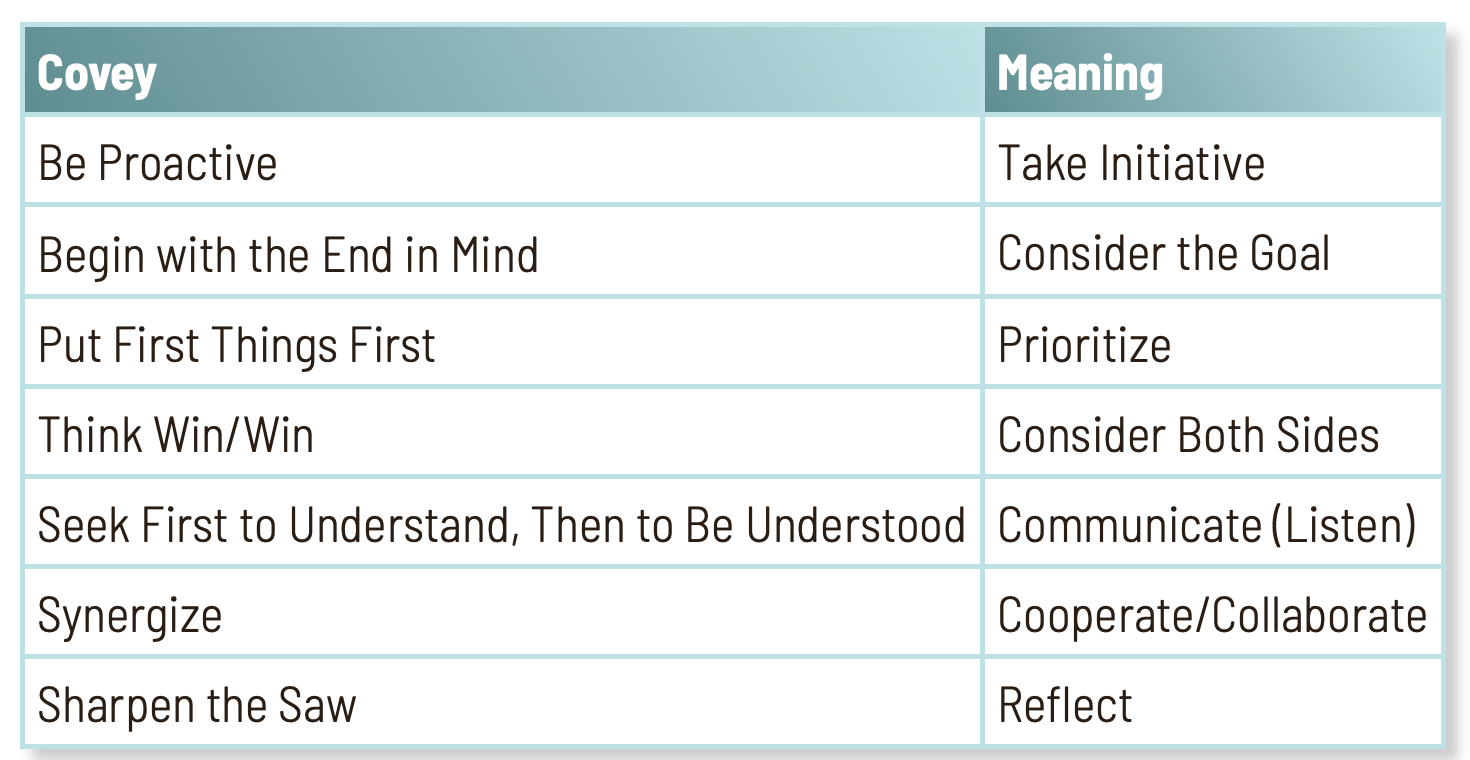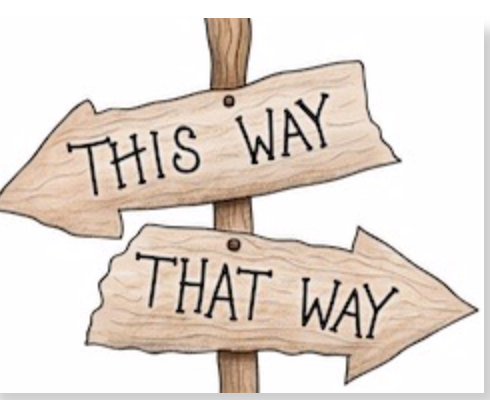Reactive vs Proactive
Who are You?
There is nothing I can do….OR….I wonder what an alternative might be
They will not allow that….OR….I wonder what different approach
I can take
I must do that….OR….I choose to do this
If only I could….OR…I will
Covey published The 7 Habits of Highly Effective People in 1989. This book continues to be a best seller along with several of his other publications. Following 7 Habits in 2000 he published Living the 7 Habits: Applications and Insights. Below is a table summarizing Covey’s principles. Consider how you might apply his “habits” to move yourself from the reactive to the proactive approach to the opening scenarios.

Summarizing the above when addressing the options in the opening scenarios Covey is saying “play the ball before it plays you”.
Personal well-being can fit into both categories…
proactive and reactive.
Avoiding a healthy lifestyle focused on integrating wellness and lifelong learning does not consider the long-term goal (Covey’s 2nd principle). We would all agree that daily exercise and a healthy diet has positive benefits for body, mind, and spirit. The key is…are we proactive or reactive to achieve that goal? Personal well-being is an ongoing process which is dynamic and progressive. Optimal well-being relies on your choices (proactive) rather than luck (reactive).
More examples of proactive approach to well-being include:
**Drinking plenty of water help lubricate joints, boosts skin health, aids in accessibility of minerals and nutrients to the body.
**Chiropractic adjustments aid in alignment of the spine for good posture, affects central nervous system, improves joint mobility, improves circulation.
**Viewing wellness (body, mind, and spirit) as part of your planned self-care.
Review the wellness resource to apply Covey’s 7th principle (reflection) to determine if your personal well-being is on track.
Consider how you would respond to each question in the following ways:
**What is my status/condition?
**Is this factor important to me and if so, how does it fit into a priority list?
**How can I be more proactive to achieve my wellness goals?

In 2004, Covey published The 8th Habit: From Effectiveness to Greatness. The 8th habit is “Find your voice and inspire others to find theirs.”
“Look at the word responsibility—“response-ability”—the ability to choose your response. Highly proactive people recognize that responsibility. They do not blame circumstances, conditions, or conditioning for their behavior. Their behavior is a product of their own conscious choice, based on values, rather than a product of their conditions, based on feeling.”
–Stephen Covey
Learning to be more proactive about your wellness along with active engagement in your overall well-being is an ongoing lifelong learning process – there are always actions to take. Remember, being proactive in your lifelong wellness is a skill you can develop and train.



